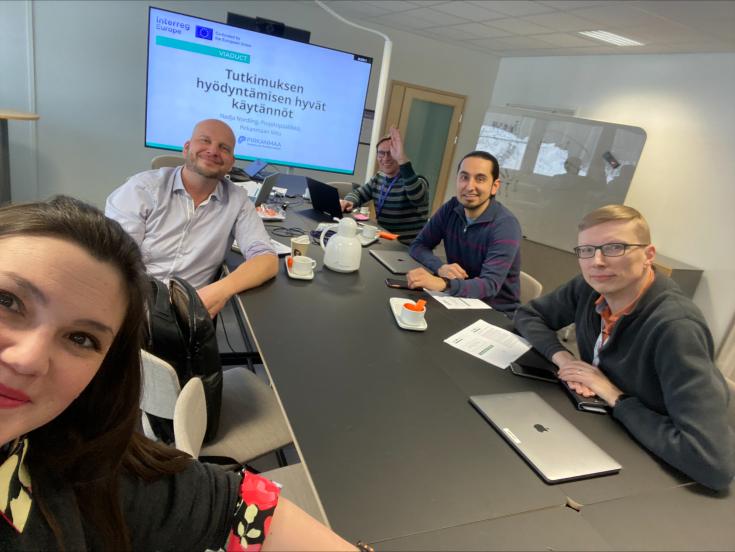Research-based spin-off creation: Regional study report

Deep technology startups hold unparalleled potential to revolutionise industries, pushing the boundaries of innovation and redefining the realms of what is possible. While research-based spin-off companies have long been recognised as key drivers of innovation, establishing them faces formidable challenges, including a low entrepreneurship culture among researchers and hurdles in translating research outcomes into viable business ideas. Acknowledging the critical role of strengthening the spin-off ecosystem for sustainability and regional economic development, the findings and recommendations of a survey conducted as part of the Interreg Europe | VIADUCT project have been unveiled.
The report, generated from a survey conducted in late 2023 in Tampere Region, encapsulates insights garnered from 51 stakeholders in research commercialisation, spanning regional universities, development organisations, and spin-off companies. The comprehensive survey sought to shed light on the establishment of research-based spin-off companies and mechanisms for research utilisation, aiming to address challenges and enhance the overall understanding of this intricate ecosystem.
Key Findings
The survey results underscore the significance of several key focus areas for fostering a robust spin-off ecosystem:
1. Communication Channels: Improving communication channels emerged as a pivotal need, emphasising the importance of streamlined information flow among stakeholders.
2. Active Participation: Fostering active participation among researchers and other stakeholders is crucial for creating a collaborative and supportive environment.
3. Practical Training: The survey highlights the necessity for practical training programs that equip researchers with entrepreneurial skills, facilitating the transition from academia to business.
4. Regional Support Network: Strengthening the regional support network is identified as imperative for creating an ecosystem that encourages and sustains spin-off companies.
Additionally, the report assesses the spin-off ecosystem in Tampere Region, identifying its strengths, weaknesses, opportunities, and threats. Proactive researchers and awareness of entrepreneurship skills development are identified as strengths, while communication gaps among researchers represent a notable weakness. Opportunities lie in establishing clear communication channels and empowering research group leaders, while the threat of inadequate support for multidisciplinary teams looms.
Recommendations
The recommendations derived from the report serve as a foundation for targeted interventions and strategic initiatives aimed at accelerating the spin-off ecosystem in Tampere Region. Key recommendations include:
1. Consistent Alignment: Ensuring consistent alignment among policymakers, stakeholders, and communities is deemed essential for the development of a thriving spin-off ecosystem.
2. Structural Support: Emphasising a structural model that supports researchers and spin-off companies, the recommendations advocate utilising not only university resources but also tapping into the broader regional innovation environment.
3. Strategic Collaboration: Strategic alignment and collaboration among stakeholders are emphasised as crucial elements for realising the vision of a vibrant spin-off ecosystem that promotes innovation, sustainability, and economic growth in the region.
In conclusion, the VIADUCT project's survey and subsequent report provide a roadmap for cultivating an environment conducive to the success of research-based spin-off companies in Tampere Region. The call to action is clear - a united effort among policymakers, stakeholders, and communities is imperative to unlock the full potential of deep technology startups, driving innovation, and fostering economic growth in the region.
To read the full Regional Report, please visit: Regional Study Report_Tampere Region_022024.pdf (interregeurope.eu)